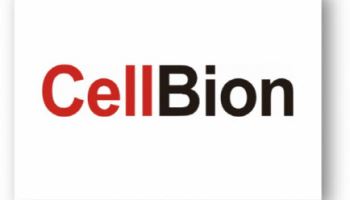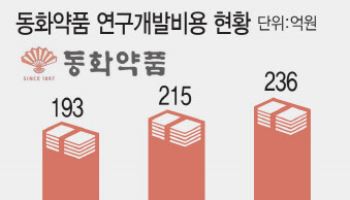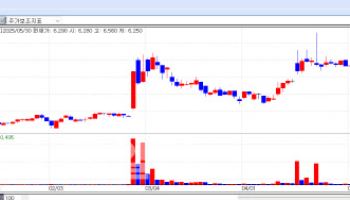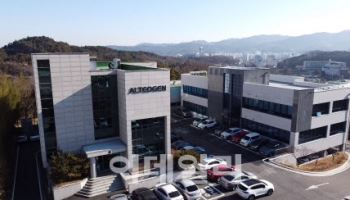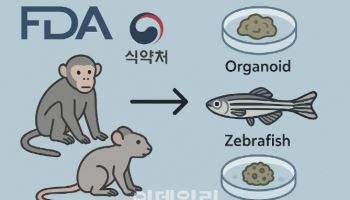Unauthorized reproduction or distribution is illegal and subject to criminal penalties.
Pharm Edaily enforces a zero-tolerance policy and will take strict action.
[Kim Jiwan, Edaily Reporter] Naturalendo Tech, at the center of the 2015 “Fake Baeksoo” crisis, is making a comeback.
According to MP Doctor (formerly MarketPoint) by KG Zeroin, Naturalendo Tech’s stock closed at 2,800 KRW, up 19.91% (465 KRW) from the previous trading day.
The Supreme Court ruled that the credibility of the announcement at the time was questionable. However, it also concluded that state institutions are not liable for compensating shareholders for the subsequent stock price collapse.
 | | Cynanchum wilfordii. (Photo=Edaily DB) |
|
On June 2, the First Division of the Supreme Court (Presiding Justice Noh Tae-ak) finalized a ruling rejecting a damages lawsuit filed by 18 shareholders of Naturalendo Tech against the Korea Consumer Agency and the government. This marks the end of a five-year legal battle, with the Supreme Court upholding the lower court’s decision.
In April 2015, the Korea Consumer Agency announced that some Baeksoo products distributed in the market contained “Cynanchum auriculatum,” a plant ingredient potentially harmful to humans. Naturalendo Tech’s stock plummeted shortly after this announcement, dropping from around 86,000 KRW to 8,500 KRW in less than a month.
However, the Supreme Court pointed out that the agency did not clearly determine how much of the harmful substance was present in Naturalendo Tech‘s products or how it got there before making the announcement. There was also insufficient evidence that the company had intentionally used the ingredient.
“The Consumer Agency’s judgment that the company substituted Baeksoo with the cheaper Cynanchum auriculatum for cost-saving purposes lacked sufficient basis,” said the court. “The announcement could have created the impression that Naturalendo Tech’s products were broadly contaminated with harmful substances.”
Although the Supreme Court found the announcement to be factually inaccurate, it ruled that there was no clear causal link between the statement and the share price drop, thereby rejecting the shareholders’ damage claims.
The court explained, “The damage to reputation or trust in the product stems from the company itself. Economic losses suffered by shareholders due to a falling stock price are not legally compensable.”
NovaRex , Best-Ever Quarterly Export Performance ODM health supplement firm NovaRex is riding a wave of optimism as its export momentum, especially to China, continues to strengthen. On the day, the company’s stock jumped 14.87% (2,290 KRW) to close at 17,690 KRW.
 | | NovaRex’s new Osong plant. (Photo=NovaRex) |
|
DS Investment & Securities analyst Jang Ji-hye stated, “NovaRex’s overseas sales are expected to reach 109.4 billion KRW in 2025, up 20% from last year. The rapid increase in orders from key Chinese clients and new customer acquisition are driving growth.”
The company’s overseas revenue share, which was only 7% in 2021, surged to 25% by 2023 and is expected to hit 34% this year.
Q1 2025 results support this trend. Export sales rose 85% year-on-year to 31.4 billion KRW, with China accounting for 24 billion KRW?a record high.
Jang added, “Rising demand in China, more orders from existing customers, new partnerships, favorable exchange rates, and cost control are expected to improve overall profitability.”
A NovaRex official commented, “Thanks to aggressive sales activities last year, we secured those clients and recorded record-breaking performance in Q4.”
DS Investment & Securities forecasts NovaRex will post 324.4 billion KRW in consolidated revenue and 26.9 billion KRW in operating profit this year up 9% and 16% year-on-year, respectively.
Inventage Lab’s, Confidence in Long-Acting Platform Inventage Lab continues its upward momentum. The company‘s recent filing of a patent invalidation claim against a competitor, G2GBIO, is seen as a positive catalyst for its stock, which rose 6.97% (2,800 KRW) to close at 42,950 KRW.
On April 23, Inventage Lab filed with the Intellectual Property Trial and Appeal Board to invalidate G2GBIO’s patent for a sustained-release injection formulation of donepezil, a key component in Alzheimer’s treatment. The patent involves a microsphere-based system that prolongs drug release.4
 | | Kim Joo-hee, CEO of Inventage Lab (Photo=Inventage Lab) |
|
Both companies are developing long-acting injectable technologies. As long-acting formulations for chronic diseases such as obesity, hair loss, and dementia gain popularity for improving patient adherence, competition between the two is intensifying.
Inventage Lab’s platform is called IVL-DrugFluidic, while G2GBIO’s is InnoLAMP?both microsphere-based systems aiming to dramatically reduce injection frequency.
The legal challenge is viewed as part of Inventage Lab’s effort to gain a technical edge in the Alzheimer’s market. The company signed a development deal with Chong Kun Dang in 2022 for IVL3003, a once-monthly donepezil injection now in Phase 1/2 trials in Australia.
Meanwhile, G2GBIO is developing GB-5001 and its variants GB-5001A and GB-5001D. GB-5001A is in joint development with Korea Pharma and Huons. The drug received IND approval last year from the MFDS and has completed its Clinical Study Report (CSR).
A G2GBIO official said, “We have submitted a legal opinion to the Korea Exchange and our underwriter, indicating that Inventage Lab’s chances of winning are low.”
An industry insider noted, “This isn’t just a legal battle. it’s a strategic fight for leadership in the next-generation modified drug market. The outcome could significantly reshape the competitive landscape.”





